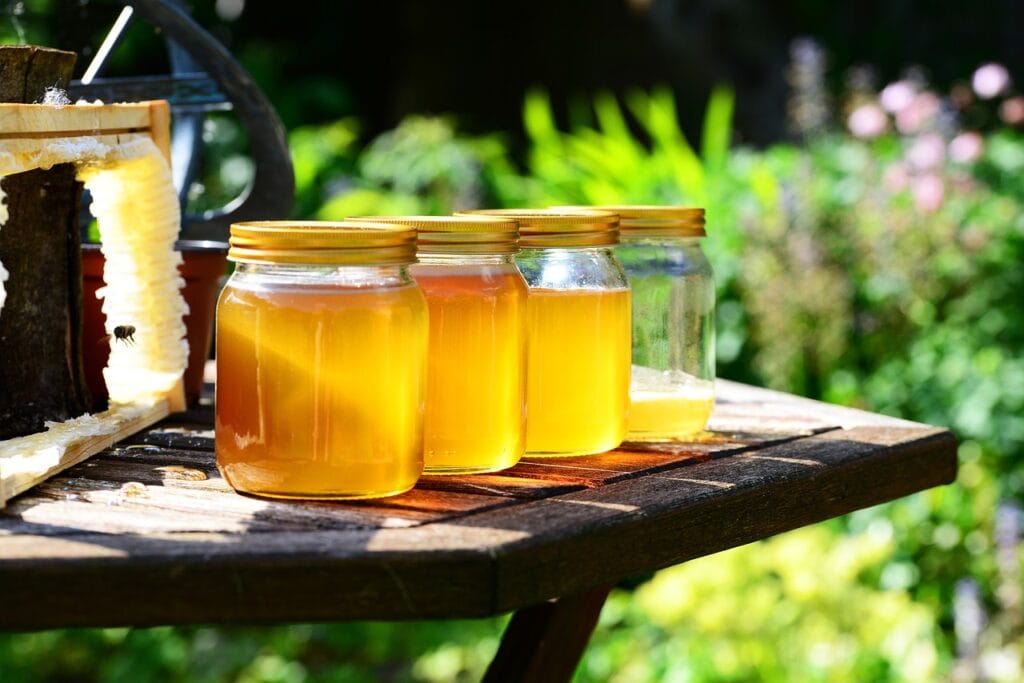The ketogenic diet, often referred to as the keto diet, has taken the health and fitness world by storm. Its focus on low-carb, high-fat consumption aims to push the body into ketosis, a metabolic state where fat is burned for energy rather than carbohydrates. One question frequently asked by people considering or following the keto diet is: Can you consume honey on the keto diet?
Honey, a natural sweetener, has been praised for its various health benefits, but it’s also high in carbohydrates. So, where does it fit into a strict low-carb regimen like keto? In this article, we’ll explore whether honey aligns with keto principles, its impact on ketosis, alternatives to honey, and how you can maintain the benefits of the keto diet while still enjoying sweetness in your meals.
What is the Keto Diet?
Before diving into the subject of honey, let’s first understand the keto diet. A ketogenic diet consists primarily of fats (around 70–80% of total daily calories), moderate protein intake (around 20–25%), and a very low intake of carbohydrates (typically less than 5–10%).
The goal is to drastically reduce carbohydrate consumption, forcing the body to shift its energy source from glucose (derived from carbs) to ketones, which are produced from fat. When this metabolic shift occurs, the body enters a state of ketosis, where fat becomes the primary fuel source.
What is Honey?
Honey is a natural sweetener produced by bees using the nectar of flowers. It has been used for thousands of years not only as a food but also for medicinal purposes, thanks to its antimicrobial and anti-inflammatory properties. Honey contains about 82 grams of sugar per 100 grams and provides a quick source of energy due to its high carbohydrate content, mostly in the form of glucose and fructose.
The health benefits of honey are numerous:
- Rich in antioxidants: Honey contains flavonoids and phenolic compounds that help fight oxidative stress.
- Antibacterial and antifungal properties: Honey has been used traditionally to treat wounds and infections.
- Cough suppressant: Honey is a well-known remedy for soothing sore throats and reducing cough symptoms.
- Digestive aid: Honey may support gut health by promoting the growth of beneficial bacteria.
However, its high carbohydrate content makes honey a questionable choice for keto enthusiasts.
Nutritional Composition of Honey
To understand whether honey can fit into the keto diet, we need to examine its nutritional content. A tablespoon of honey (about 21 grams) contains:
- Calories: 64
- Carbohydrates: 17 grams
- Sugar: 17 grams
- Fat: 0 grams
- Protein: 0 grams
- Fiber: 0 grams
Since the keto diet requires you to limit daily carb intake to around 20–50 grams, a single tablespoon of honey could potentially use up nearly all of your allotted carbohydrates for the day.
Is Honey Keto-Friendly?
At first glance, it’s clear that honey is not a keto-friendly food due to its high sugar and carbohydrate content. Consuming even a small amount of honey can easily exceed your daily carb limit, making it difficult to stay in ketosis.
Ketosis is the metabolic state where the body burns fat for energy instead of carbohydrates. Consuming a significant amount of carbs—such as those found in honey—can kick you out of ketosis, negating the benefits of the keto diet, such as fat loss, improved mental clarity, and stable blood sugar levels.
While honey does have nutritional and medicinal benefits, its high carbohydrate content means it doesn’t align well with the principles of the ketogenic diet.
Can You Ever Have Honey on the Keto Diet?
Although honey is generally not considered keto-friendly, some people following the ketogenic diet may wonder if there are circumstances in which they can still enjoy it.
If you are following a cyclical keto diet (CKD) or a targeted keto diet (TKD), there may be some leeway to consume small amounts of honey. These variations of the keto diet allow for more carbohydrates during certain periods:
- Cyclical keto diet (CKD): This approach involves periods of high-carb consumption (typically 1–2 days) followed by several days of strict keto. On high-carb days, honey could be consumed as part of a carbohydrate refeed.
- Targeted keto diet (TKD): This variation allows for the consumption of carbohydrates before or after workouts. In this case, honey might be used as a quick source of energy before an intense workout, as your body will burn the carbs more efficiently during exercise.
However, for individuals on a standard keto diet (SKD), which limits daily carbohydrate intake to around 20–50 grams, honey should be avoided or consumed in very minimal quantities to prevent disruption of ketosis.
The Glycemic Index of Honey
Another factor to consider when evaluating honey’s role in the keto diet is its glycemic index (GI). The glycemic index measures how quickly a food raises blood sugar levels. Foods with a high GI are rapidly digested and absorbed, causing a swift increase in blood sugar, which can also spike insulin levels.
Honey has a glycemic index of 58, which is considered moderate. In comparison, table sugar has a glycemic index of around 65. While honey may cause a slightly slower rise in blood sugar compared to regular sugar, it can still have a significant impact, especially for those on the keto diet who need to maintain stable blood glucose levels to stay in ketosis.
Why Honey Might Knock You Out of Ketosis
Even a small serving of honey can affect ketosis. Here’s why:
- Carb content: Honey’s primary composition is carbohydrates in the form of sugar, which your body will use before tapping into fat stores for energy. This can inhibit the production of ketones, taking you out of ketosis.
- Spike in blood sugar: The glucose and fructose in honey cause a rapid rise in blood sugar, which triggers insulin release. High insulin levels can block fat-burning processes and disrupt ketosis.
- Displacement of healthy fats: On a keto diet, you want most of your daily calories to come from fats. Consuming honey, which provides calories but no fat, reduces the proportion of fat intake and affects the balance required to maintain ketosis.
Keto-Friendly Sweeteners: Alternatives to Honey
If you’re on the keto diet and have a sweet tooth, you’re not out of luck. There are plenty of keto-friendly sweeteners available that can satisfy your cravings without kicking you out of ketosis. Here are some of the most popular ones:
1. Stevia
Stevia is a natural sweetener derived from the leaves of the Stevia plant. It has zero calories and zero carbohydrates, making it a perfect sweetener for the keto diet. Additionally, stevia has a glycemic index of 0, meaning it doesn’t raise blood sugar levels. It’s also much sweeter than sugar, so a little goes a long way.
2. Erythritol
Erythritol is a sugar alcohol that occurs naturally in some fruits and fermented foods. It contains almost zero calories and carbohydrates, making it an excellent option for keto. Erythritol is about 70% as sweet as sugar and doesn’t cause spikes in blood glucose or insulin.
3. Monk Fruit Sweetener
Monk fruit extract is another natural sweetener that has gained popularity in the keto community. It contains zero carbs and has a glycemic index of 0. Like stevia, monk fruit is much sweeter than sugar, so you only need a small amount to achieve the desired sweetness.
4. Xylitol
Xylitol is another sugar alcohol with a low glycemic index, making it a decent option for keto, although it does contain some carbs. It’s about as sweet as sugar, but you should use it in moderation, as it can have a slight impact on blood sugar levels.
YOU MAY ALSO LIKE: Keto Diet on a Budget
Is Raw Honey Better for Keto?
You may have heard that raw honey is healthier than processed honey due to its higher content of vitamins, minerals, and antioxidants. While this is true, raw honey still contains just as much sugar and carbohydrates as its processed counterpart. Therefore, even raw honey isn’t suitable for the keto diet, despite its potential health benefits.
Benefits of Honey Outside the Keto Diet
While honey isn’t ideal for the keto diet, it’s still a beneficial food in many other dietary contexts. Some potential benefits of honey include:
- Boosts energy: Honey provides a quick source of glucose, which can be useful for athletes or individuals needing a fast energy boost.
- Rich in antioxidants: Honey is loaded with antioxidants that can help combat oxidative stress and inflammation in the body.
- Supports immune health: Due to its antimicrobial properties, honey can help strengthen the immune system and support overall health.
- Helps with sleep: A spoonful of honey before bed is said to improve sleep quality by stabilizing blood sugar levels and promoting the release of melatonin.
- Improves skin health: Honey can be used topically to heal wounds and promote healthy skin, thanks to its antibacterial and anti-inflammatory properties.
How to Enjoy Sweetness on Keto Without Honey
If you’re committed to the keto lifestyle but miss the sweetness of honey, you can still enjoy various low-carb, keto-friendly alternatives to add flavor to your dishes.
- Keto desserts: Many keto-friendly dessert recipes use sweeteners like stevia, erythritol, or monk fruit to provide sweetness without the carbs.
- Sweeten beverages: Instead of adding honey to tea or coffee, try a few drops of liquid stevia or a teaspoon of erythritol.
Flavor dishes: In place of honey, consider using extracts such as vanilla or almond to enhance the flavor of your food.
- Sugar-free syrups: Many brands offer sugar-free syrups that are sweetened with keto-friendly options like monk fruit or erythritol. These syrups can be used to replace honey in recipes.
Conclusion
While honey is a natural and nutrient-rich sweetener, its high carbohydrate content makes it unsuitable for most people following the standard keto diet. Consuming honey, even in small amounts, can quickly add up in carbs, making it difficult to maintain ketosis. That said, honey may have a place in more flexible versions of the keto diet, such as cyclical or targeted keto.
For those strictly adhering to the keto diet, it’s best to avoid honey and instead opt for keto-friendly sweeteners like stevia, erythritol, or monk fruit. These alternatives allow you to satisfy your sweet cravings while keeping your carb intake low and preserving the metabolic state of ketosis.
If your goal is to stay in ketosis while enjoying the health benefits of the keto diet, sticking to low-carb sweeteners is the way to go. While honey can still play a role in a healthy diet outside of keto, it’s best reserved for non-keto days or special circumstances.


